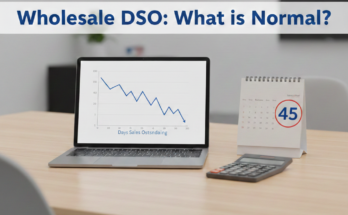The internet has opened a universe of new opportunities for people. The advent of the internet has compelled many people to launch their businesses or shift their existing retail companies online.
Did you know there are approximately 12 million to 24 million eCommerce websites across the globe? And the number is not going to stop here! With each passing day, numerous entrepreneurs are entering the arena of online business.
Why? Because it has become tremendously easy to launch an online store. All that a person needs to establish the business is a good internet connection, a few clicks, and a promising eCommerce platform like Shopify.
Just as launching the business is like a cup of tea, surviving and excelling the company in the highly competitive market is an uphill task. The advancement of technology has bestowed many bounties on online sellers, but almost every business is familiar with those marketing tools and strategies.
Hence, a seller cannot depend on simply one marketing channel to outshine his competitors and boost eCommerce sales.
Instead of focusing on one marketing channel, the business should try and implement various marketing strategies to survive in the market, attract more customers, and increase traffic on its eCommerce store.
Are you aware of a marketing strategy that numerous brands have deployed? It’s affiliate marketing!
- 81% of brands use affiliate marketing to boost their eCommerce sales
- 16% of online orders account for affiliate marketing
- 38% of marketers believe affiliate marketing as a top acquisition channel
It’s time that you also deploy this popular marketing strategy to step up your marketing campaign and attract more customers.
Today’s article will serve as a handy guide to affiliate marketing strategies for beginners. We’ll discuss affiliate marketing, how it works, and finally, talk about the effective affiliate marketing strategies to boost eCommerce sales.
Affiliate Marketing
Affiliate marketing strategy is a performance-based marketing approach where an affiliate earns a commission for advertising products or services of other brands or companies.

To put it in simpler terms, affiliate marketing is where an affiliate promotes and markets the brand or products of other businesses to receive a commission or cut when the product is sold.
The success of affiliate marketing lies in the number of devoted followers or audience of the affiliate. For instance, if an affiliate promotes a product on his Instagram account that has very few followers or dormant followers, the marketing will fail.
Hence, selecting an affiliate whose niche is similar to the business and has an engaged audience is essential.
An Overview Of How Affiliate Marketing Works?
Affiliate marketing usually involves three parties:
- The Merchant / Producer/ Vendor
- The Affiliate
- Consumers
Affiliate marketing begins when the merchant or producer of the product finds and partners with the affiliates of its niche and assigns them with an affiliate link or a unique ID. Next, the affiliates promote the brand’s products on their social media accounts, YouTube channels, newsletters, blog posts, etc.
The affiliates talk about the product, highlight its features, or even develop unique and creative ideas to promote it on their platforms. When prospects click on the affiliate link to visit the business’s website, cookies are generated and stored on their devices. The cookies contain the affiliate ID. The IDs help the seller to recognize the affiliate and trace the source of traffic on its website.
If prospects purchase a product from the website, the seller can recognize the affiliate by the stored cookies with a unique ID on the prospect’s browsing device. The affiliate gets a cut if the person visits the business’s website and makes a purchase.
Importance Of Affiliate Marketing
The most significant benefit of affiliate marketing is that it creates a win-win situation for all the parties involved, i.e., the merchant, an affiliate, and the customers.
The Merchant
Affiliate marketing is the most accessible form of marketing for merchants. They don’t have to invest a heavy amount in promoting their products. All they have to do is identify and partner up with the affiliates whose ideas resonate with the business and have an organic audience interested in the business’s products.
The affiliate will undertake the job of promoting and advertising the market. As a result, the business’s eCommerce sales will increase, and the affiliate will receive a certain percentage from each sale. The merchant will not be required to pay anything to the affiliate unless a prospect reaches the business’s website from his platform.
The Affiliate
Affiliates have a strong community of organic audiences who trust and follow their recommendations. When an affiliate promotes a business product, it can earn a commission if its followers purchase that product through his channel.
The Customers
When customers visit the business’s website through an affiliate link, they are offered discounts or unbeatable product prices.
No party is at a loss in affiliate marketing strategy. Merchants, affiliates, and even the customers all enjoy the benefits of this marketing strategy.
Now, it’s time to move on to the most awaited part of this article; best affiliate marketing strategies for driving more sales in 2021.
Let’s dive in!
Eight Best Affiliate Marketing Strategies That Drives More Sales In 2021
1. Partner With High Reputation Affiliates
The backbone of affiliate marketing lies in partnering up with an affiliate with a robust platform and an organic audience interested in the same niche as your business.
For example, a merchant that sells skincare products will partner up with affiliates whose audience is interested in taking care of and rejuvenating their skins. If the same merchant partners up with a fitness YouTuber, affiliate marketing will be rendered useless as the affiliate’s audience’s interests don’t align with the product.
Hence, selecting an influential and well-reputed affiliate is essential for affiliate marketing success, especially if your business is a startup or not very popular in the market. Therefore, before selecting the affiliate, ensure to check the following characteristics:
- The affiliate must have devoted active followers who engage with the affiliate’s content.
- They must be well-reputed and famous on the internet or social media.
- Their website should have a good ranking or a good number of viewers, followers, and a high engagement rate if they are YouTubers or influencers.
A brand with products that aids in weight loss can partner up with key nutritionists, dieticians, or even with the bloggers who are fitness enthusiasts and promote the content related to it on their website.
2. Select he Appropriate Payment Model
All good things have a price, so has affiliate marketing. The most common payment model is when a prospect purchases something, and the affiliate gets a cut from the sale.
But, there are other payment models as well that can be used by the merchant to pay the affiliates. The reason behind this is the objective of the business. For example, a startup business wouldn’t aim to boost its sales; instead, it would aim to increase brand awareness.
Hence, selecting the pay-per-sale model will be futile for the merchant and the affiliate.
Thus, select the payment method that aligns with the overall objective of your marketing campaign.
Generally, there are three ways in which the merchants can pay the affiliate:
a) Pay Per Sale
This is the most common and standard affiliate marketing payment structure. The affiliates receive a certain percentage from the sales if the prospects visit the business’s website and purchase the business’s product through their platform.
b) Pay Per Click
Under this payment model, the affiliates earn when their audience is directed to the merchant’s website or social media accounts. The merchant has to pay the affiliates when he receives traffic on the website from the affiliates’ platforms.
c) Pay Per Lead
The merchant has to pay the affiliates when they lead their audiences to the business’s website and make them complete an action, for example, signing up for the newsletter, submitting a form, downloading printable material, or eBook, etc.
Select the payment method that is effective in achieving your marketing goal.
3. Collaborate With Social Media Influencers
Social media has become the new search engine for Gen Z. Social networking sites have a massive number of active users. Therefore, it is a perfect platform for entrepreneurs to introduce their businesses to the potential audience and convert them into customers.
Collaborating with social media influencers can drive more effective results. It is because social media influencers or content creators interact more with their audience and significantly influence them. Hence, partnering with social media influencers can earn the merchant more traffic, leads, and even sales.
Many renowned brands have collaborated with the key influencers of their niche to reach a wider audience and expose their products to massive prospects. For instance, the famous watch brand Daniel Wellington collaborated with numerous fashion and lifestyle bloggers to reach its targeted audience and boost eCommerce sales.
Make sure that the influencer you choose to work with has:
- Organic followers and not bots.
- The influencer must have a good rapport with its followers.
- Has a good engagement rate on its posts.
Some brands also collaborate with celebrities for affiliate marketing. However, partnering up with celebrities is expensive for the new business and ineffective if the celebrity’s audience is not interested in the product.
4. Partner Up With Affiliates On Multiple Platforms
Many marketers and merchants focus only on one platform when it comes to partnering with affiliates. The company will either collaborate with influencers, bloggers, or YouTubers to promote its products to a massive audience.
Depending on one marketing channel is not a smart approach by the business. Instead, as an entrepreneur, you should grab every opportunity to market your brand on every channel where your targeted audience exists.
Collaborate with affiliates on different platforms to reach out to more audiences. The following are some examples of the sources you can leverage to promote your brand and sales.
a) Social Media
As discussed above, social media has a vast number of active users. The business can partner up with influencers or join different groups where the admins and moderators promote the brand’s products.
b) Product Review Blogs
The business can also approach famous blogging websites and partner up with the blogger. The blogger can review the product, highlight its pros and cons in its blog posts and mention the link to the business’s website.
c) Email Marketing
Lookup for affiliates who have a large number of newsletter subscribers. The affiliate can send its subscribers information about your brand, products, and the link to your website.
5. Leverage Exclusive Deals And Coupons
To make your affiliate marketing successful, drive more prospects to your website, and compel them to purchase the products, offer customers special deals and discount coupons.
Offering discounts and deals to the prospects will be like a small encouragement to them for buying the product.
If the affiliate has promoted your goods and influenced the person to purchase the product, discount codes or coupons would work as a catalyst to bring them to the business’s website and make them place the order.
6. Become A Member Of Affiliate Marketing Network
This strategy is crucial for businesses who are amateur in the arena of eCommerce. Building a solid affiliate network is mandatory to reap the benefits of affiliate marketing.
It takes a reasonable amount of time to build your own affiliate network. But, to begin with, follow the below-mentioned steps:
- Search for the affiliates that promote the goods of your industry or niche. Connect with them and provide them with all the necessary details of your company and the product. Also, inform them about the commission rates.
- Entice your affiliates to employ sub-affiliates to receive a small share for each sale generated by their sub-affiliates.
- Reward your loyal affiliates with a higher percentage of commission or other benefits that they can avail of, such as free delivery for a year.
- Offer better commission rates than your competitors to welcome more affiliates in your program.
Suppose a prospect decides to visit your website after a few days of the promotion by the affiliate; he must be able to find you by entering the name of your business, products that you sell, etc., in the search engine.
If your business doesn’t appear on the first few results, the prospect might reconsider his purchasing decision and think of your business as incompetent.
7. Optimize Website’s Speed And Content
Affiliate marketing is of immense help to attract new prospects, increase brand awareness, and generate traffic. However, if a business wants visitors to turn into customers, it must optimize its website speed and content.
A slow website kills conversions. Therefore, ensure to decrease the load on your web pages to optimize the site’s speed. Similarly, don’t forget to make your website responsive to various digital devices, especially mobile phones.
8. Invest In SEO
Search engine optimization is the backbone of improving a website’s traffic, ranking, and visibility on the search engine result pages.

Investing and working on your website SEO is essential if you want to make your mark in the market. People turn to the search engine giant Google for their every trivial problem. If people are looking for the products that you deal in, ensure that your website is visible to them on the first page of the search engine result pages.
Now, if you are wondering how affiliate marketing is connected with SEO, let us explain it to you:
If an affiliate talks about your brand and highlights your product’s key features, all the prospects on his platform will not rush to your website to purchase the product. Instead, some people will come immediately to your website, while others will take time to make up their minds about the purchase.
Wrapping Up
Here, you have it! Eight best affiliate marketing strategies to drive more sales in 2021.
What are some other effective affiliate marketing strategies that you know? Please enlighten us in the comments below.
Author Bio:

Ricky Hayes is the Co-Founder and Head of Marketing at Debutify – a free Shopify theme, helping dropshippers build high-converting stores in minutes. He is a passionate entrepreneur running multiple businesses, marketing agencies, and mentoring programs.




